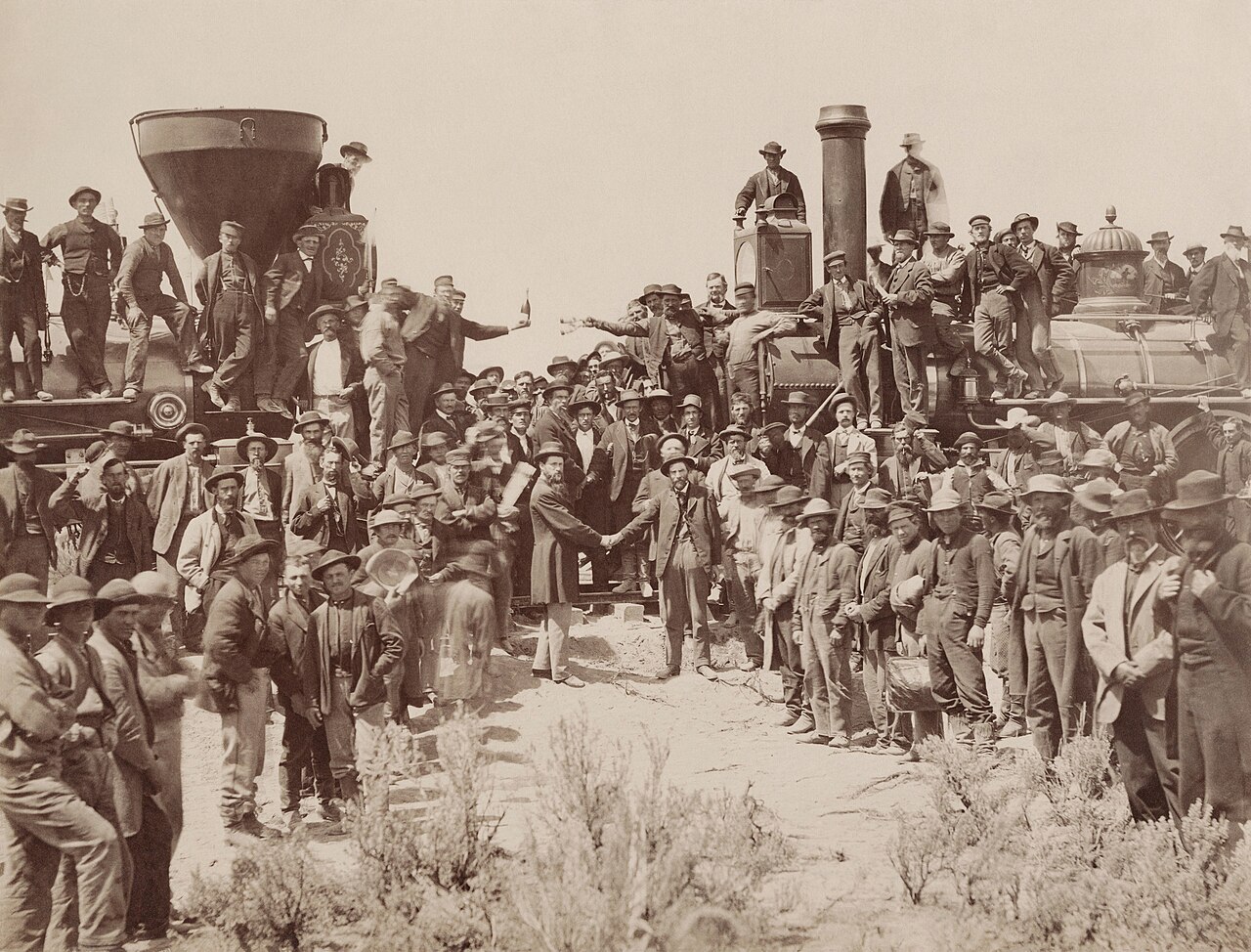Once again I anticipated one of the books Dr. Carroll selected for the subject-of-the-month. Nothing Like It In the World was informative, though I also would have enjoyed a bit more technical detail and perhaps less of the somewhat repetitive descriptions of tunneling and murdering Indians.
I was surprised to recognize the degree to which the West Coast was a foreign land before the railroad. Cross-country travel was a horrible ordeal, either overland, slow and difficult and fraught with danger, or sailing south with a crossing in Panama, slow and dangerous and fraught with danger, or all the way around Cape Horn, slow and etc.
Another book gives a vivid description of the difficulties facing the traveller of the 1800s.
- The stage-coach was itself a rude conveyance, of a kind still familiar to experienced travellers. Twelve persons, crowded into one wagon, were jolted over rough roads, their bags and parcels, thrust inside, cramping their legs, while they were protected from the heat and dust of mid-summer and the intense cold and driving snow of winter only by leather flaps buttoned to the roof and sides. In fine, dry weather this mode of travel was not unpleasant, when compared with the heavy vehicles of Europe and the hard English turnpikes; but when spring rains drew the frost from the ground the roads became nearly impassable, and in winter, when the rivers froze, a serious peril was added, for the Susquehanna or the North River at Paulus Hook must be crossed in an open boat, an affair of hours at best, sometimes leading to fatal accidents.
The railroad project was an absurdly massive undertaking, one so costly and unpromising that private investors would not touch it (though they would support rail when it made sense). Once Lincoln got the federal government to back the transcontinental project, the "capitalists" were quick to jump on the opportunity to harvest public dollars. Ambrose makes it clear that the construction companies did not count on the enterprise ever paying off, so they angled to make as much money as possible on the construction itself, creating a shell company to launder the funds which would result in the biggest scandal in U.S. history, exposing lawmakers stuffing their pockets with shares.
It created a lot of jobs, at least, and in California finding labor was a significant challenge. One difficulty was simply the sparse population. A greater one was the mad rush for gold. Men would accept transport to rail jobs, then desert en masse to go to the Nevada mines. Ships clogged the San Francisco harbor, as sailors and captains alike abandoned ship, determined to strike it rich. Chinese laborers, despite being looked upon as little better than women, were eventually found the most reliable and cost-effective workers. In fact they performed far more admirably and decently than their typically Irish counterparts, whose notorious behavior at the constantly moving construction site gave rise to Hell on Wheels. By "jobs" one usually means paid work, but Brigham Young arranged for Mormon men to provide much of the construction work in Utah, and "The American Experience" reports, in a good documentary, that they were never paid; Ambrose says Young eventually settled for payment in surplus equipment used to build a connecting spur to Salt Lake City. The Union Pacific was habitually late with wages, even while shareholders were reaping handsome dividends.
The completion of the project was a big deal, the top newspaper story of the day. The two construction companies, one going east and one west, had passed each other and were preparing parallel routes to soak up as many federal dollars as possible, at one site crossing a huge ravine with both the Big Fill and a giant wooden trestle. Alongside the railway a telegraph line was built, and the hammer used to drive in the last Golden Spike was wired to the telegraph, so the whole nation could experience the first nationwide media event (except the president of the Central Pacific missed the spike).
#learnnewthings schedule:
January 2016 – Water and growth in California
February – Wine
March – Game theory
April – Cryptography
May – Art history
June – The history of railroads in the U.S.
July – Oceanography
August – Football (strategy and theory)
September – Chaos theory
November – Linguistics
